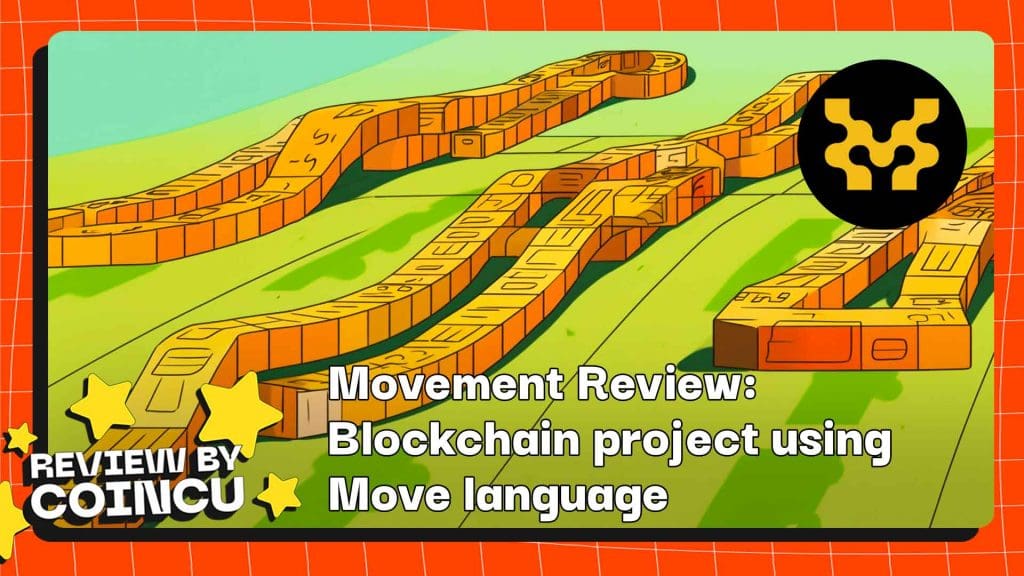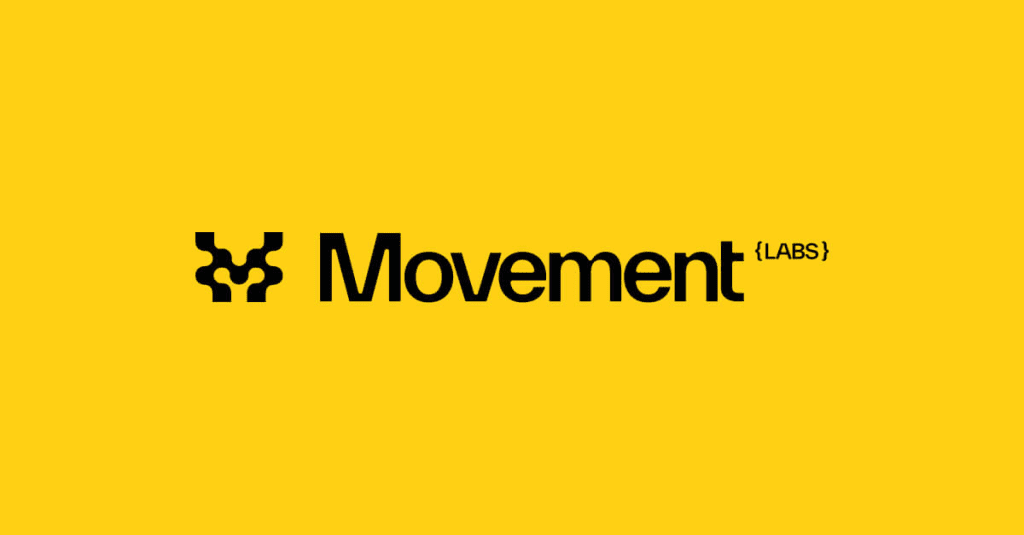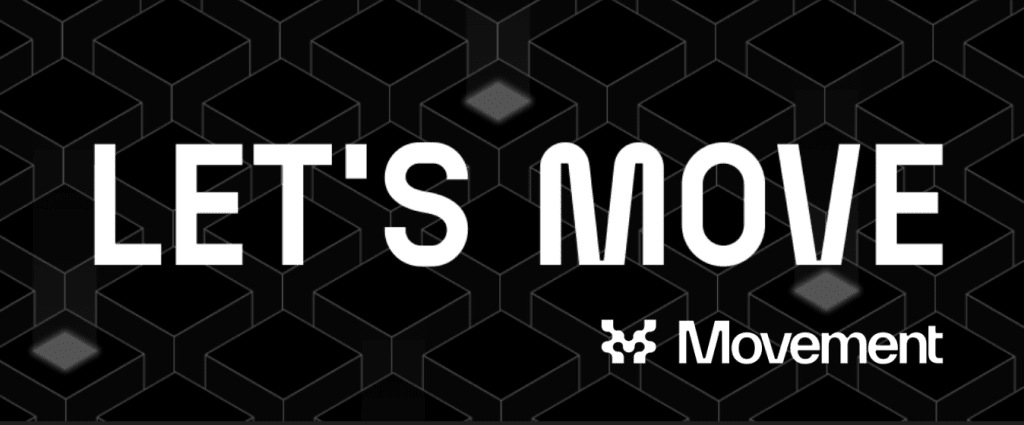Movement Labs is revolutionizing Move execution across different networks and environments with our flagship products M1 and M2. We’re working on the Movement SDK, Movement CLI, Fractal, Hyperlane messaging infrastructure, and the Movement Shared Sequencer for seamless interoperability between our Move-based environments and other networks. In this Movement Review let explore more about this project.

What is Movement?

Movement is a modular framework to build and deploy blockchain networks in the Move language. It is vertically integrated and horizontally scalable, with interaction with Ethereum and other ecosystems.
It has its flagship products M1 and M2, and in addition, the Movement SDK, Movement CLI, Fractal, Hyperlane messaging infrastructure, and the Movement Shared Sequencer. These aim at seamless interaction between our Move-based environments and other networks.
Read More: Ice Blue Review: NFT Free-Mint Project Supported By Aptos
Main feature of Movement

- High Transaction Speed: The blockchain developed by Movement Labs has the ability to support up to 30,000 TPS, which is quite higher than the speed of the current Ethereum network.
- EVM Compatibility: The Movement Labs blockchain is EVM-compatible, allowing developers to deploy smart contracts on the Movement network without extra hassle.
- Support for Parallel Execution: Movement Labs’ blockchain supports parallel execution, allowing for the processing of several transactions in parallel. This results in higher efficiency at lower transaction costs.
- Rich Resources: Movement Labs has closed two rounds with $41.5 million raised, including top investment funds such as Polychain Capital and Binance Labs. Yi He, the CEO of Binance Labs, praised the new modular model of Movement as a pioneer in bringing the Move language into the network of Ethereum.
Read More: Sui and Mesh Combine Forces to Bring Simplified Transactions Across the Sui Ecosystem
Products of Movement
M1
M1 is the first blockchain to the Movement ecosystem, enabled by the Movement SDK. It is currently in the devnet phase and used for testing and development purposes. M1 is a permissionless Move-based blockchain.
Top features
- Move Virtual Machine: This is made possible through the Move Virtual Machine: M1 allows developers to deploy custom virtual machines, which enable them to build blockchain applications for their needs.
- This high performance is enabled through Movement SDK, comprising of the Modular MoveVM technology that enables this seamless interaction between M1 and AvalancheGo, Avalanche’s decentralized consensus messaging layer, with 1240 validators.
- M1 is also made use of with Fractals, which is compatible with EVM applications. This makes it compatible with Ethereum-based protocols and still guarantees high security from the threat of attacks.
M2
M2 is a Layer 2 blockchain that deploys a Move programming language and currently operates as a Celestia rollup. It has been released in testnet. In the architecture of zk-rollup, M2 builds over Ethereum’s Layer 1. The network uses the Snowman consensus mechanism for high throughput and efficient ordering of transactions.
The M2 sets a goal for tens of thousands of TPS using Parallel Execution while being fully compatible with Ethereum. M2 supports EVM and Move clients to interact and deploy all types of smart contracts.
Top features
- Supports a wide variety of dApps, from games and consumer applications to financial products.
- Integrated into its model is the Blobstream technology by Celestia, which enables efficient data management and fast processing of transactions—up to over 145,000 transactions per second.
- MoveVM is used to scale the Ethereum network better, with higher performance and security.
Besides M1 and M2, Movement develops several products of weight:
- Movement CLI: infra for interacting with platforms like Fractal, Hyperlane, etc.
- Movement Shared Sequencer: Provides the best compatibility on all environments powered by languages based on Move and many other blockchains.
- Move Stack: Execution layer framework compatible with the best L2 solutions such as Optimism, Polygon, and Arbitrum.
Movement Ecosystem
The Movement now comprises an ecosystem with numerous projects. The largest number of projects is represented by the DeFi and Infrastructure categories. Some of the featured projects in the Movement ecosystem include:
- MilkyWay, a liquid staking protocol on the modular blockchain Celestia, raised a $5 million seed funding round co-led by Binance Labs and Polychain Capital.
- Near is a blockchain network using a proof-of-stake consensus protocol, one of the many Layer 1 options available in the market. It aims to solve some of the problems of the ongoing Ethereum network.
- Avail is a modular blockchain project that will help transcend the flaws of the classic blockchain platforms like Bitcoin and Ethereum. This project offers a flexible blockchain platform, which is developed based on the needs of various applications.
Tokenomics
As of now, the official tokenomics information has not been announced.
Team and Investors
Team
Movement is a blockchain development company headquartered in San Francisco and operated by Movement Labs. It was founded by Rushi Manche and Cooper Scanlon. Detailed information about the key project members:
- Rushi Manche is a Co-founder and CEO with prior experience as a software engineer at Aptos and has also founded the Ensemble project, which integrates AI technology to support teaching. More interestingly, he dropped out of Vanderbilt University before establishing Movement Labs in November 2022.
- Cooper Scanlon is a Co-founder and CEO who dropped out of Vanderbilt University to build Movement Labs. Unlike Manche, Scanlon has kept personal information off social media platforms.
Investor and partners
The total sum for Movement Labs was $41.4 million in three funding rounds.
- Round 1: Pre-seed, 09/13/2023. The project has raised $3.4 million in a Pre-Seed round led by Borderless Capital, Blizzard Fund, dao5, Varys Capital.
- Round 2: Series A, 04/25/2024. Movement Labs secured $38 million in a Series A round led by Polychain Capital. Among the notable participants are Aptos, OKX Ventures, Bankless Ventures, Figment Capital, Robot Ventures, and more.
- Round 3: Funding Round, 04/01/2024. Binance Labs invested in Movement Labs to bring Facebook’s Move language to Ethereum and beyond. Binance Labs is the VC arm of the leading CEX, Binance. The value of the investment deal has not been disclosed yet.
The money is targeted to be spent on the deployment of M1 and M2 solutions, team expansion in terms of software engineers and blockchain experts, and further increasing its presence in the Asia-Pacific region and other target markets.
Roadmap
On 16th January, the project presented the roadmap of Parthenon, where the following milestones were revealed:
- Phase 1: Launch M1 Alpha Validator
- Phase 2: Launch M1 Genesis Validator
- Phase 3: Launch M1 Incentivised testnet; Launch first Parallelized Move-EVM & Modular Testnet Campaign
- Phase 4: Introduce Move Stack to support decentralised sequencers and start developing Move-based rollups
- Phase 5: Integrate Sui Move & deploy Sui contracts through RPC Sui
- Phase 6: Roll out M2 testnet – the first Layer 2 Move-EVM on Ethereum. M2 will use Celestia for Data Availability and M1 as a decentralised sequencer
The project is currently in Phase 3 of the roadmap. The Movement team announced the launch of the Parthenon public testnet in Q2 2024 and plans to release the mainnet in Q4 of the same year.
Movement Airdrop Guide: Step By Step
Step 1: Install Razor Wallet and create a new wallet.
Step 2: Get testnet tokens here. Make sure to switch into M1 Devnet and get some MOVE tokens from the faucet.
Step 3: Dive into the ecosystem through Movement and access DEX Razor. Then do some swapping and add liquidity between MOVE and other tokens.
Step 4: Engage with other social activities by Movement, Galxe, and Zealy.
Conclusion
In this Movement Review, you understand that Movement is a blockchain project using the Move programming language. M1 and M2 are innovative projects by Movement incorporating Facebook’s Move language into Ethereum.
CoinCu feels this project is very promising for you to invest in, or even hunt for airdrops in the near future, because it’s the first incredibly innovative solution that can combine Move language and Ethereum.
| DISCLAIMER: The information on this website is provided as general market commentary and does not constitute investment advice. We encourage you to do your own research before investing. |




